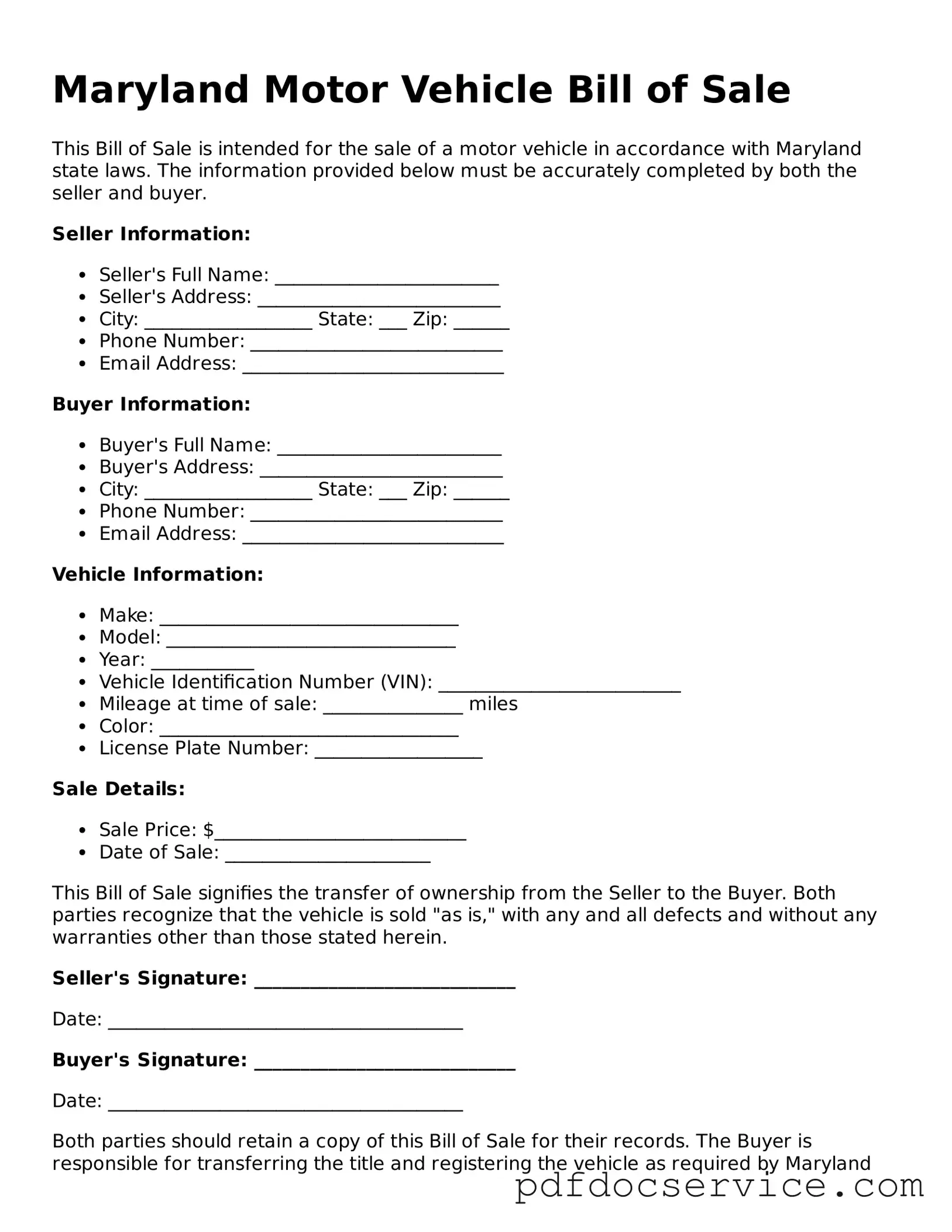What is a Maryland Motor Vehicle Bill of Sale?
A Maryland Motor Vehicle Bill of Sale is a legal document that records the sale of a vehicle between a buyer and a seller. It serves as proof of the transaction and includes important details about the vehicle and the parties involved.
Why do I need a Bill of Sale for a vehicle in Maryland?
A Bill of Sale is important for several reasons:
-
It provides proof of ownership transfer.
-
It helps protect both the buyer and seller in case of disputes.
-
It is often required when registering the vehicle with the Maryland Department of Transportation.
The Bill of Sale should include the following details:
-
Names and addresses of the buyer and seller.
-
Vehicle identification number (VIN).
-
Make, model, and year of the vehicle.
-
Sale price and date of the transaction.
-
Odometer reading at the time of sale.
Is a Bill of Sale required for all vehicle sales in Maryland?
While a Bill of Sale is not legally required for every vehicle sale, it is highly recommended. It provides essential documentation for the buyer and seller, especially for vehicles that are not registered or titled in Maryland.
Can I use a generic Bill of Sale template for Maryland?
Yes, you can use a generic Bill of Sale template, but it is advisable to ensure that it complies with Maryland laws. Including all necessary information specific to your transaction will help avoid issues later on.
Do I need to have the Bill of Sale notarized?
No, notarization is not required for a Bill of Sale in Maryland. However, having it notarized can add an extra layer of security and authenticity to the document.
What should I do with the Bill of Sale after the sale?
After completing the sale, both the buyer and seller should keep a copy of the Bill of Sale for their records. The buyer will need it for vehicle registration, while the seller may need it for tax purposes or proof of the transaction.
How does the Bill of Sale affect vehicle registration?
The Bill of Sale is often required when registering a vehicle in Maryland, especially for used cars. It provides the necessary proof of ownership and sale price, which can be important for tax calculations during registration.
What if there are errors on the Bill of Sale?
If you notice errors on the Bill of Sale, it is best to correct them before finalizing the transaction. Both parties should agree on the changes, and it may be helpful to initial any amendments to maintain clarity and agreement.
You can obtain a Maryland Motor Vehicle Bill of Sale form from various sources, including:
-
The Maryland Department of Transportation website.
-
Local Department of Motor Vehicles (DMV) offices.
-
Online legal form providers.

